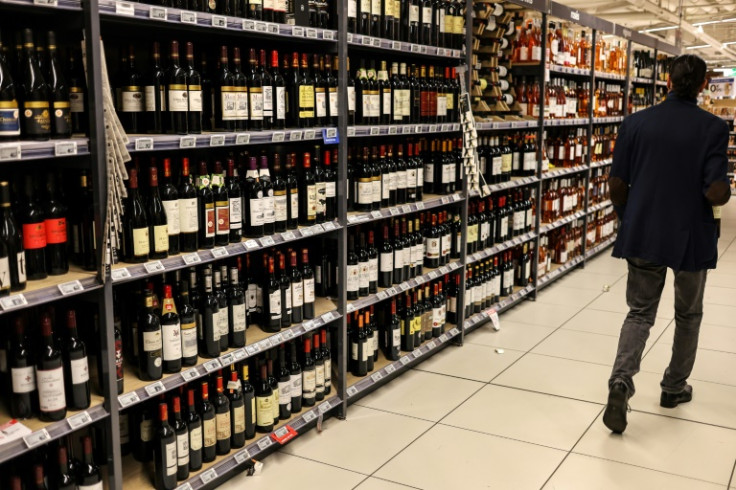White Wine Lovers Beware: Summer Sip Linked to 22% Spike in Skin Cancer Risk
New research finds a concerning link between white wine consumption and a higher risk of melanoma, especially when combined with summer sun exposure

The chilled glass of white wine on a sunny afternoon may taste like summer, but it could also be increasing your skin cancer risk.
A new meta‑analysis found that white wine drinkers face a 22% higher chance of skin cancer compared to those who favour red wine.
What the Research Found
Scientists from Brown University led a review of 42 observational studies involving 2.8 million participants and 95,923 cancer cases. They found no significant difference in overall cancer risk between red and white wine drinkers. However, the spotlight fell on skin cancer—particularly melanoma—where white wine was linked to a significant 22% increased risk.
Further work across U‑S cohort studies, including the Women's Health Initiative, showed that both melanoma and non‑melanoma skin cancers—such as basal cell carcinoma (BCC) and squamous cell carcinoma (SCC)—were notably higher in those who preferred white wine or spirits.
Why White Wine? Possible Explanations
Experts propose two main theories for the heightened risk:
- Acetaldehyde Content
White wine may contain more acetaldehyde—a known carcinogen—than red wine. Acetaldehyde damages DNA and has been linked to several cancers. - Risky Sun‑Soaked Behaviour
White wine is often enjoyed outdoors on sunny days, potentially paired with less sunscreen use, leading to increased UV exposure. The studies flagged this sun‑drinking synergy as a possible risk enhancer.
What Do Health Experts Say?
Dr Eunyoung Cho, co‑author of the mini‑review, told Health.com: 'Heavy alcohol consumption might be linked to high‑risk behaviours, such as sunburn, indoor tanning, or insufficient sunscreen use... but it's still unclear why white wine appears to be the key factor.'
The World Cancer Research Fund and IARC both classify alcoholic beverages, including wine, as Group 1 carcinogens, noting that even moderate drinking can increase cancer risk.
Should You Switch to Red or Just Drink Less?
While red wine contains antioxidants like resveratrol, which may offer some protection, the overall message remains: no alcoholic beverage is risk‑free. A separate study links just one bottle of wine per week to an increase in certain cancers equivalent to moderate smoking.
Common‑sense advice includes:
- Limiting alcohol intake where possible
- Applying sunscreen, especially if sitting in the sun
- Rotating weaker early evening drinks with non‑alcoholic options
Certainly! Here's a credible, detailed summary of the original passage, rewritten with a professional tone and fact-backed framing while maintaining the original intent:
A Wake-Up Call for Everyday Habits
While the study isn't meant to vilify wine, it sheds light on how multiple lifestyle factors can combine to elevate cancer risk, particularly skin cancer.
As Dr Eunyoung Cho, co-lead author of the Brown University meta-analysis published in Nutrients, emphasised, white wine—unlike red—was linked to a notable increase in melanoma risk when viewed through long-term cohort studies.
Researchers suspect that this may be due to acetaldehyde, a toxic by-product of alcohol metabolism and a probable human carcinogen, which appears in higher concentrations in white wine. Combined with ultraviolet (UV) exposure during the sunnier months, the effects could be more damaging than previously assumed.
As summer sets in, this study serves as a timely reminder: favourite warm-weather habits, like sipping white wine outdoors, may carry hidden risks.
What You Can Do:
- Drink in moderation: Limit wine intake, especially white wine, during high-sun exposure.
- Use SPF daily: Sunscreen remains your best defence against UV-induced skin damage.
- Don't rely on antioxidants alone: While red wine contains some protective compounds, it doesn't cancel out alcohol's risks.
- Monitor your skin: Look for new or changing moles or spots and consult a GP promptly.
- Review lifestyle choices with your doctor, especially if you're a regular drinker or have a family history of skin cancer.
These small adjustments can significantly reduce long-term cancer risk, reinforcing that prevention lies not in fear, but in informed daily decisions.
© Copyright IBTimes 2025. All rights reserved.





















